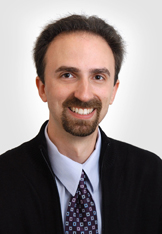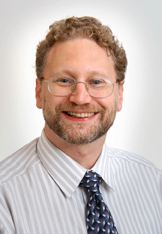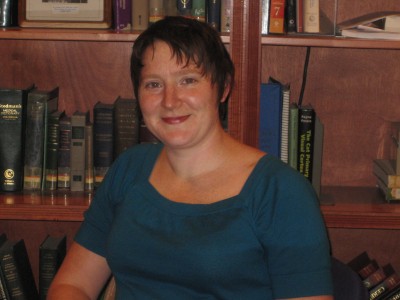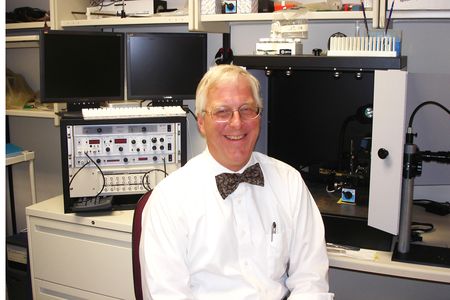Faculty
Peter R. Bergethon, M.D.
Peter Bergethon, MD is the Head of the Laboratory of Intelligence Modeling and Neurophysics and a member of the faculty in both the Departments of Anatomy/Neurobiology and Biochemistry at Boston University. He is also a member of the adjunct faculty at Tufts University in Bioengineering and Neurology. He graduated with honors in neurocybernetics and computational biology from Williams College. Following graduation from Jefferson Medical College he completed residencies in both Internal Medicine and Neurology at Boston City Hospital and trained in biophysical chemistry at Boston University. Dr. Bergethon is is board-certified in internal medicine and neurology and is trained as an NIH supported physician-scientist in biochemistry and biophysical chemistry. His research spirals around a core question: “What is the physical and systemic basis for creativity and intelligent behavior and how could such behavior be practically constructed or reconstructed?” This core query has significance on several levels. The basic neurophysics significance lies with the value in determining the fundamental processes, equations and organizational principles that give rise to intelligent behavior. However there are important clinical applications that relate to the molecular and cellular processes of brain damage, potential mechanisms for neuro-protection, and recovery of lost function in ischemia, epilepsy, and neurodegenerative disease. The ultimate thrust of his laboratory is the design, construction and interaction with “intelligent machines” inspired by biological understanding.
His research program uses a unified, theoretical model based on a systems-dynamics approach to explore the mechanisms underlying nervous system behavior. The model has the advantage that it allows processes from the level of biophysical mechanisms to be related to cognitive models, such as a model of education and learning. His laboratory is active in using mathematical and computational tools as well as the design and construction of hybrid biological-electronic physical systems capable of intelligent response. This work has resulted in collaborations and funding from the Carnegie Foundation for the Advancement of Teaching and the National Institutes of Health as well as industry. In addition to patents, research papers and textbooks he is the creator of SymmetryScience a K-8 science education program – a science literacy program teaching science as “way of looking at the world”.
He is an active member of the American Academy of Neurology, the Electrochemical, Biophysical, American Chemical Societies, the Society for Neuroscience and the American Society of Biochemistry and Cellular Biology. He has been elected to the American Neurological Association and is a past president of the Boston Society of Neurology and Psychiatry. He has been an active physician-scientist while he has managed and run major academic Neurology departments as the Director of Clinical Neurology and Interim Chief of Pediatric Neurology at Tufts Medical Center.
 Kevin Hallock, Ph.D.
Kevin Hallock, Ph.D.
Dr. Kevin Hallock is the Assistant Director to the Healthcare Emergency Management Program, for which he teaches several classes. A recent addition to the crisis management space, he is a member of Boston University School of Medicine’s Emergency Operations Committee.
He received his Ph.D. in physical chemistry and biophysics from the University of Michigan studying the behavior of naturally occuring antimicrobial peptides in mechanically aligned lipid bilayers using solid-state nuclear magnetic resonance (NMR). With antibiotic resistance an ever-increasing problem, new methods for combating the most resistant infections are essential. The prospect of a pandemic flu resistant to treatments like Tamiflu is chilling.
Dr. Hallock’s current research interests include using imaging techniques such as magnetic resonance imaging (MRI) and near-infrared spectroscopy (NIRS) to learn about fundamental physical processes in a human nervous system to better understand how people learn. How does biology impact bias? What is the best way to teach somebody something new? These questions are central to the training of first responders and first receivers because they constantly face new hazards, often requiring additional training. Developing more efficient training techniques will maximize the availability of the people who are the backbone of our emergency response network.
 Kevin C. Thomas, M.B.A., Ph.D.
Kevin C. Thomas, M.B.A., Ph.D.
Dr. Kevin “Kip” Thomas is an Assistant Professor in the Department of Anatomy and Neurobiology at Boston University School of Medicine, where he is the director of the Master of Science in Healthcare Emergency Management Program.
He comes to Boston University from the greater Washington D.C. Metropolitan area, where he earned a Masters in Business Administration and a Doctorate in Public Policy from George Mason University, School of Public Policy, Fairfax Virginia.
Dr. Thomas’s experience includes over 20 years of military service, both in the field as a submariner, and at the Pentagon as an aide to the Secretary of the Navy. Since 2002, he has taught diverse groups of students at both the undergraduate and graduate levels.
Dr. Thomas was the founding Research Programs Director for the Critical Infrastructure Protection Program at George Mason University- a $20+ million research program for developing and analyzing methods of critical infrastructure protection and cyber security. In addition to providing project oversight for over 50 research activities conducted across more than 14 universities, Dr. Thomas personally led or participated as a researcher in a number of these projects.
Dr. Thomas teaches four classes for the Healthcare Emergency Management Program: Ethical and Policy Issues in Health and Medical Services, Experimental Design and Statistics for Emergency Managers, Psychology and Sociology of Disaster Methods and Risk Communication, and The Disaster Lifecycle. He is also active in advising students. His office is currently located in the Evans Biomedical Research Center at Boston University School of Medicine.
 Ann Zumwalt, Ph.D.
Ann Zumwalt, Ph.D.
Dr. Zumwalt earned her doctorate in 2005 from the Center for Functional Anatomy and Evolution at the Johns Hopkins University School of Medicine. Her research there demonstrated that endurance exercise does not affect the surface morphology of skeletal muscle attachments. These findings challenge the rarely questioned assumption that analysis of these features can be used to provide insight into the activity patterns of extinct human and animal populations. Dr. Zumwalt subsequently joined the Animal Locomotion Laboratory in the Department of Biological Anthropology and Anatomy at Duke University. There she investigated the effects of hypermuscularity on locomotor patterns and bone morphology in rodents. She also collaborated on various research and educational projects with clinicians in radiation oncology, obstetrics and gynecology and neurology.
Dr. Zumwalt joined the Department of Anatomy and Neurobiology in 2007. Her research interests include various topics in the neurobiology of education, including the neurobiological underpinnings of adult learning, and changes in perception as individuals grow from naïve learners to experts. She is also interested in clinical anatomy projects that advance clinicians’ understanding of anatomy in a way that improves medical procedures such as surgical approaches or radiation treatments.
Dr. Zumwalt teaches in the Gross Anatomy course and is the section leader for the Thorax-Abdomen-Pelvis section of the course. She also directs advanced anatomy refresher sessions for the Obstetrics & Gynecology clerkship and teaches in Advanced Clinical Anatomy. She participates in the department’s Teaching in the Biomedical Sciences course and Anatomy Journal Club, and is the faculty advisor for the Anatomical Sciences Interest Group.
Some of Dr. Zumwalt’s service efforts include acting as a School of Medicine representative to the University Faculty Council and as co-chairman of the John McCahan Medical Education Day committee. On a national level, she is actively involved in the American Association of Anatomists, having served on the AAA’s Advisory Committee of Young Anatomists and Board of Directors.


